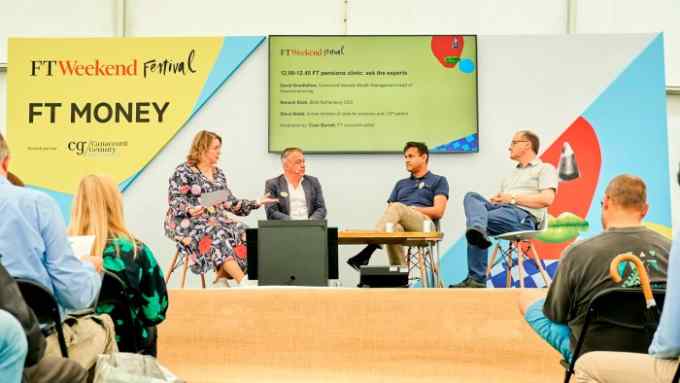Best of FT Money 2023: Cash buyers hold trump cards in prime UK property market

Simply sign up to the Property sector myFT Digest -- delivered directly to your inbox.
Well-off home buyers with mortgages are cutting their purchasing budgets while cash buyers are taking advantage of their financial resources to stick to their plans, according to research underlining the impact of higher rates on the UK’s prime property market.
Researchers at estate agent Savills found a growing division between those buying with a mortgage and cash purchasers. When asked whether they had changed their purchasing budget, most cash buyers (72 per cent), said it remained the same. Meanwhile, nearly 60 per cent of those looking to take out a mortgage with a loan-to-value ratio above 50 per cent said they had cut their budget.
“Cash buyers who are not exposed to concerns around rising interest rates have been able to drive ahead strongest in the current market,” said Frances McDonald, director of research at Savills.
Appetite for a move at the top end of the market for homes at £2mn or more has fallen back since April over concerns about high interest rates and the economic outlook, according to the research, though it remained up on demand at the end of last year.
In a survey measuring the balance of intentions among respondents in the prime property market — for the top 5 to 10 per cent of properties by value — Savills found a net balance of 24 per cent were looking to move in the next year, compared with 21 per cent in November.
The Bank of England raised its official interest rate by a quarter-point to 5.25 per cent this week, the 14th time it has done so since December 2021. The Bank warned that interest rates were likely to stay higher for longer, as its updated forecasts suggested inflation would not subside to its 2 per cent target until mid-2025.
Half of mortgaged households were still to experience a rise in repayments since its base rate began rising in late 2021, the BoE said. Around 4mn would do so by the end of 2026.
Roarie Scarisbrick, partner at buying agent Property Vision, said cash buyers “are in a stronger position and they know it,” given uncertainty around the outlook for mortgages. He had noticed an increase in the number of deals falling through after a sale had been agreed, with buyers and sellers choosing to walk away if problems arose with surveys, title or mortgage arrangements. “At times like this, anything that comes up in due diligence can easily derail a deal,” he said.
It had taken sellers a long time to acknowledge that they might no longer expect to achieve “yesterday’s price”, he added, but in the past two months they were showing more willingness to negotiate. “What I’ve started to see is sellers engaging with good buyers — often cash buyers — and cutting sensible deals.”
Savills found the appetite for buying in the next three months among those looking at a mortgage with an LTV of 50 per cent or more had fallen by a net 5 per cent since April, whereas 16 per cent more cash buyers were looking to move over the period.
Among mortgaged buyers, Savills found a preference for shorter-term home loans, with more than one-third (35 per cent) choosing a two-year fixed rate deal compared with 23 per cent in November. The research underlines buyers’ reluctance to lock into a long-term fix when rates may continue to fall, in spite of the higher cost of shorter term options.
Zoopla, the property website, said home buyers were reconciling themselves to “normal” mortgage rates settling at between 4 and 5 per cent, rather than the ultra low, sub 2 per cent rates of recent years.

Comments